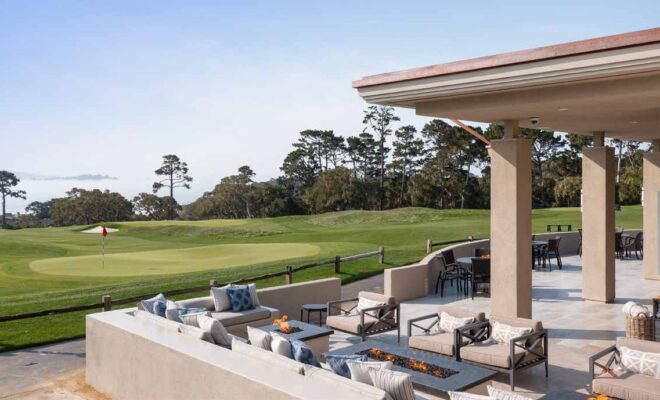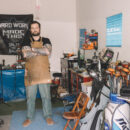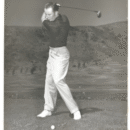Indoor Golf
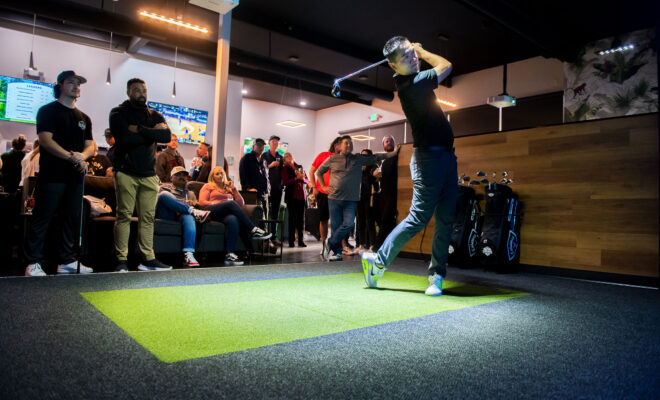
Southern Californians Are Teeing It up Inside, En Masse
On a recent 70-and-sunny San Diego afternoon, golfers unsurprisingly flocked to tee it up. But instead of soaking up some rays, many headed to The Golf Bar, an indoor golf facility that’s also an SCGA-affiliated club.
“Why wouldn’t they?” asked Chris Go, general manager and a longtime SCGA member. “This is real golf, just indoors.”
Fact is, indoor golf technology has evolved to a remarkably authentic, high-definition and captivating golf experience, making it an exceedingly appealing alternative, especially when it’s often hard to find time to squeeze a round in, score a tee time or both.
Golfers can get their hacks in day and night in a fraction of the time it takes to play 18, all while enjoying air conditioning, luxury couches and food and drink. Go says his digital course selection tops 60 and includes Pebble Beach, St Andrews and various exclusive private layouts that most golfers will never get the chance to play in real life.
How’s business? The Golf Bar just opened its fourth location — in La Quinta — to complement two in San Diego and one in Huntington Beach. That type of indoor golf growth is typical across America, including all over Southern California, where myriad facilities have popped up. Many are open to the public, some are private. Regardless, all are busy, despite the region’s famously fantastic weather and many outdoor courses.
Golfers showing up to play run the gamut of skill levels. “We get both beginners and hardcore golfers,” says Jason Chambers, PGA golf professional at Onyx Golf in Irvine. “Because we’re a Trackman facility, we’ve got state-of-the-art technology for people who really want to hone their game. We attract lots of top-level players and juniors because they get instant data feedback. But there’s also the group that’s like, ‘I only have to hit the ball eight feet. I can handle that.’ It’s a comfort thing. There’s music, they can eat food and get a beer. It’s more about the entertainment for beginners, without any pressure.”
There are plenty of other reasons indoor golf’s popularity is soaring in the Southland. Since the pandemic, local tee sheets at traditional courses have been full, making it hard to secure a tee time anywhere — let alone during prime time. And as demand keeps growing, the number of courses doesn’t. “Oak Creek Golf Club in Irvine is closing, so we’re losing another local course where we already don’t have enough,” says Chambers. “Plus, it costs $150 to $200 for a round of golf at a muni right now. At indoor facilities like ours, golfers can usually get a tee time when they want. You come in here for an hour and play a complete round of golf, instead of a five- or six-hour round at a real course — the commitment is a lot less. Indoor is more about the convenience of being able to play 18 on your lunch hour. It’s a great alternative to public outdoor golf.”
At Onyx Golf, walk-ins can reserve a hitting bay for $40 an hour per person during the week, while members pay as little as $28. That seems to be the region’s going rate, with weekends costing roughly an extra $30 per hour. With time being so valuable, the rate seems like a relative bargain. And golfers can still enjoy the rest of the day with their families.
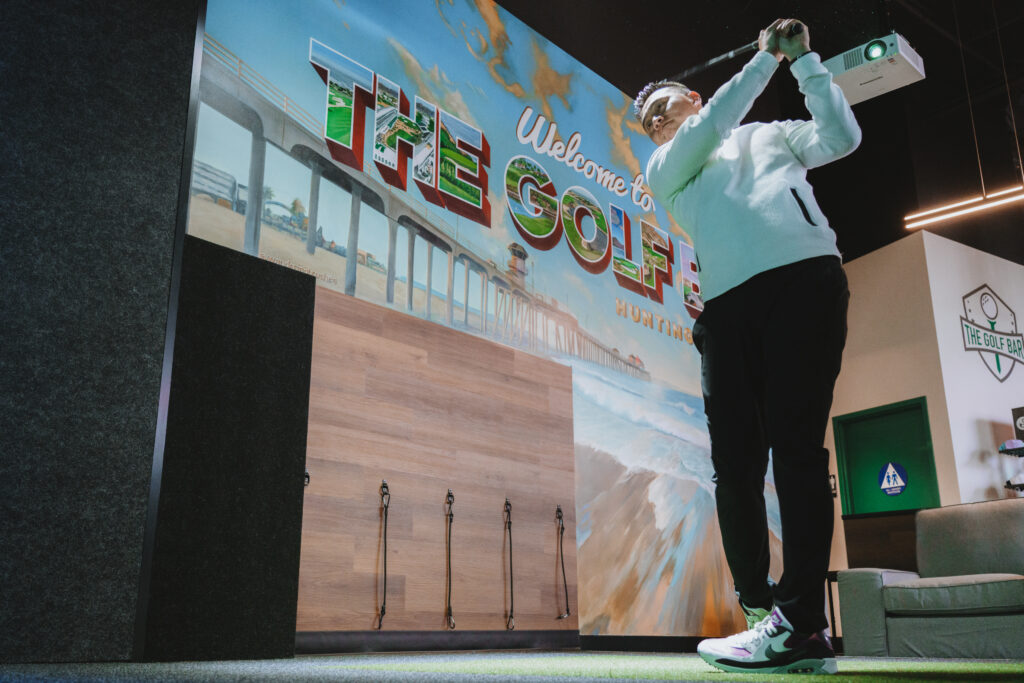
The Clubhouse Indoor Golf World in Murrieta opened in December and started attracting crowds as soon as the heat began rising along I-15. “When temperatures spike up over 100, we have an advantage over outdoor courses,” says owner and operator Quentin Murphy. “A lot of golfers don’t want to play in that heat. We give them a comfortable environment.”
“The commitment is a lot less. Indoor is more about the convenience of being able to play 18 on your lunch hour. It’s a great alternative to public outdoor golf.”
Aside from the weather, Murphy insists that the Tiger Woods-backed TGL golf league — which brought indoor golf to prime-time TV with a six-story simulator screen and live audience — has drawn golfers to his business and “helped the public interest of indoor golf 100 percent. So many people come in and ask, ‘Have you seen this?’. It draws attention to the screens and everything, obviously on a bigger scale.”
Maybe that’s why, in addition to three standard hitting bays, Murphy offers a jumbo-sized curved screen hitting bay that he calls “immersive.”
The plethora of new indoor golf venues has spawned numerous league nights, tournaments and special events to entice newcomers. Though best known to locals as a bar, Dogleg Brewing Company in Vista happens to have one hitting bay. Once a month, the facility — an official SCGA club — hosts Industry Night, which attracts employees from the headquarters of a variety of nearby golf equipment companies, including Callaway, Cobra, Titleist and TaylorMade, to compete in a closest-to-the-pin competition. The winner gets a shiny wrestling belt to display at their respective local headquarters for a month. Likewise, The Golf Bar holds events that allow players to compete for prizes that can qualify them to play in SCGA tournaments and member outings.
For those who simply want to work on their games, indoor venues have the technology to analyze swings and shots with astounding accuracy. Thus, many of these facilities offer lessons. SCGA member AJ Avoli, perpetually rated among California’s top instructors, has taught several times at the private Bermuda Club in Carlsbad, where hitting bays are the centerpiece of a social and work environment that includes a gym, spa, lounge and sports bar. Based primarily at the nearby Omni La Costa Resort, Avoli sees advantages to learning inside. “Indoor lessons are different in that every swing can be captured on video,” he says. “You can get a lot more information and numbers than if you were just hitting at the range with your instructor. People seem more inclined to make a swing change indoors versus outdoors, because they’re less worried about the shot outcome and more focused on what they’re doing with their technique and making good contact.
“People can do better in that situation because they’re not reacting to ball flight as much. The technology’s accurate, the lies are the same, and there’s no wind. There’s just a screen in front of you. Because there’s no target, it’s less outcome-oriented than a range, so golfers tend to process the information they’re getting and focus on one thing.
“Also, a lot of students need warm-up time,” Avoli continues, “so they get to the course early for an outdoor lesson. And at some courses, they must park away from the range and then walk. So, it’s longer than just the entire one-hour lesson. But if you’re taking a lesson on your lunch break, it’s probably simpler at an indoor facility.”
If you haven’t hit on a simulator in a while — or ever — you’ll be blown away by the speed, realism and ease of use. You see entire shots exactly as you would outdoors — with no lag. With so many venues available, it’s a great time to try it. You may well discover that even under a rooftop, the sky’s the limit.
10 to Try:
Los Angeles County
Birdie Club: Los Angeles birdie-club.com
Swing Factory Golf: Los Angeles swingfactorygolf.com
Orange County
Greenside Golf Club: San Clemente greensidegolfclub.com
The Golf Box: Fullerton thegolfboxllc.com
Riverside County
Bahama Golf: Corona bahamagolf.com
Canyon Lake Tee Box: Canyon Lake
San Diego County
The Back Nine Golf: Carlsbad thebackninegolf.com
Dogleg Brewing Company: Vista doglegbrewingco.com
Ventura County
SVN2 Indoor Golf: Thousand Oaks svn2golf.com
The Varsity Club at S.I.S. : Ventura tvcsis.com





